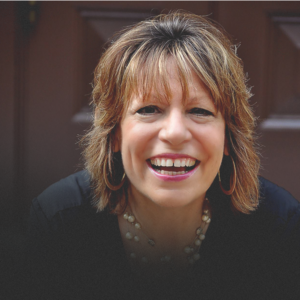
What We’re Learning: Ministry Lessons from a Mama Bluebird

We have a bluebird house in our backyard, left over from the previous owners. In the three years since we moved in, we’ve had nests in there every year. This year, a hyper-protective mama bluebird moved into the nest with her mate and hatched a family. And every morning and afternoon, she spends 15 minutes attacking her reflection in the windows that run across the back of our house.
At first we were annoyed by the sound of the mama bluebird’s beak repeatedly striking our windows every day. So we Googled this behavior to understand what was going on, and discovered this is common behavior for bluebirds who think they’re guarding their nests from a marauding interloper. Of course, now we’re less annoyed by this behavior—mostly, we feel sorry for this poor mama bird. She’s mistakenly trying to defend herself FROM herself on behalf of her babies. As ministry leaders, there’s much we can learn from this over-protective mama…
What’s Driving Protective Parents?
In our 4th-Soil Parenting project (funded by the Lilly Endowment), we discovered—accidentally—that our “parent listening” strategies had incredible traction in churches. For example, in our planning process for the grant we recruited 10 youth ministers from across the country to invite parents (with our financial support) to a nice dinner out, which included a couple of short surveys and a post-dinner focus group. Obviously, we wanted parents to enjoy a great meal and fellowship, but our surveys and guided conversations probed into their own faith, and how they are influencing the faith of their children. When church leaders reported back to us, their enthusiasm about the experience was universal. Both ministry leaders and parents LOVED spending time together around a nice meal. Ministry leaders LOVED listening to parents, most of them for the first time. And parents LOVED being listened-to.
But here’s the interesting thing that we noticed between the first round of dinner-party conversation reports (three years ago) and the second round a year or two later—an observation that meshes well with our mama bluebird’s strange behavior. In the second round of listening experiences parents expressed concerns about what “the church” might be teaching their children. They were worried about what might happen to their children at church functions. These parents felt a driving need to protect their children from the church.
It’s not hard to understand the motivation driving this new attitude of caution toward the church. First, in our second round of dinner-party listening experiences we have a much-expanded group of churches that are more diverse theologically and practically, so we expected to hear a broader range of concerns. Second, in the two years between listening-sessions we experienced a huge uptick in reports of church sexual abuse of children and politically polarizing behaviors infiltrating church culture. Parents may seem over-protective, but there’s a method to their bluebird madness…
How Can We Respond to Parents Who Seem Over-Protective?
So, what can we do to acknowledge and address these new levels of parental protectiveness?
- Show them that we get It.
Maybe you’ve raised your eyebrows at the number of snack options necessary at VBS. Or maybe you’ve rolled your eyes when you see parents helicoptering their kids. Or maybe you’ve seen parents walk away from your community because you have too many unsecured doors leading into the children’s wing. Many of us who deeply believe in the power and importance of Christian community can’t understand these “over-reactions” by parents. So, what do we do? A conventional response simply “puts up” with parents’ nervous questions and tries to assuage their concerns.
Friends, protecting our children is one of the most important tasks of parenting, period. It’s crucial for us to see and affirm that today’s parents are raising their kids in a profoundly different world—for example, they have to deal with the reality that a shooter could enter church and target their children. Our first priority is to let parents know that we see and appreciate their concerns, and that protecting their children matters more than the seamless functioning of any program. - Determine to engage their issues.
We can’t NOT talk about what parents are facing anymore. They need the church’s help with their practical concerns as much as anything we are doing to teach their children about Jesus. One of the surprising findings in our parenting-project work is the number of parents who are willing to show up for conversations about the cultural issues they are facing. These conversations were so successful and well-attended that we encouraged churches to do even more of them. We provided them with targeted conversation-starters that focus on their top concerns, giving parents LOTS of time to talk with other parents. They need to know that we’re walking right beside them as they navigate a cultural jungle, all while influencing their kids into a life of following Jesus. - Wholeheartedly engage THEM.
This is the main thing, friends. Our mama bluebird is hurting herself in an effort to protect her children. She is clearly going after the wrong target—HERSELF! But she can’t see that. Is this not also a fairly human way of functioning? How often do we attack ourselves in one way or another for the sake of the people we love? Many of us have developed a host of fruitless and unhealthy behaviors that we think will offer ourselves and our families protection from what we fear.
So, do you know the concerns your protective parents are carrying? How can you and your church come alongside them in new ways? How can you offer them space to share their pain? We need bluebird-empathy as we consider the challenges parents are facing in our churches. We need to enter into their protective mindsets with kind hearts and open arms. Remember, Jesus offered His disciples this assurance: “Come to me, all you who are weary and burdened, and I will give you rest. Take my yoke upon you and learn from me, for I am gentle and humble in heart, and you will find rest for your souls. For my yoke is easy and my burden is light” (Matthew 11: 28-30).
Right now I’m listening to our mama bluebird bang on my window as I finish writing this. I am so grateful for her willingness to help me see the job of parenting through new eyes. Please reach out to the mama bluebirds in your congregation.

Dr. Nancy Going serves as the Director of Research & Resource Development for Vibrant Faith. Nancy lives in Nashville, Tennessee with her husband Art, an Anglican priest, and they have launched two new families from their children.
